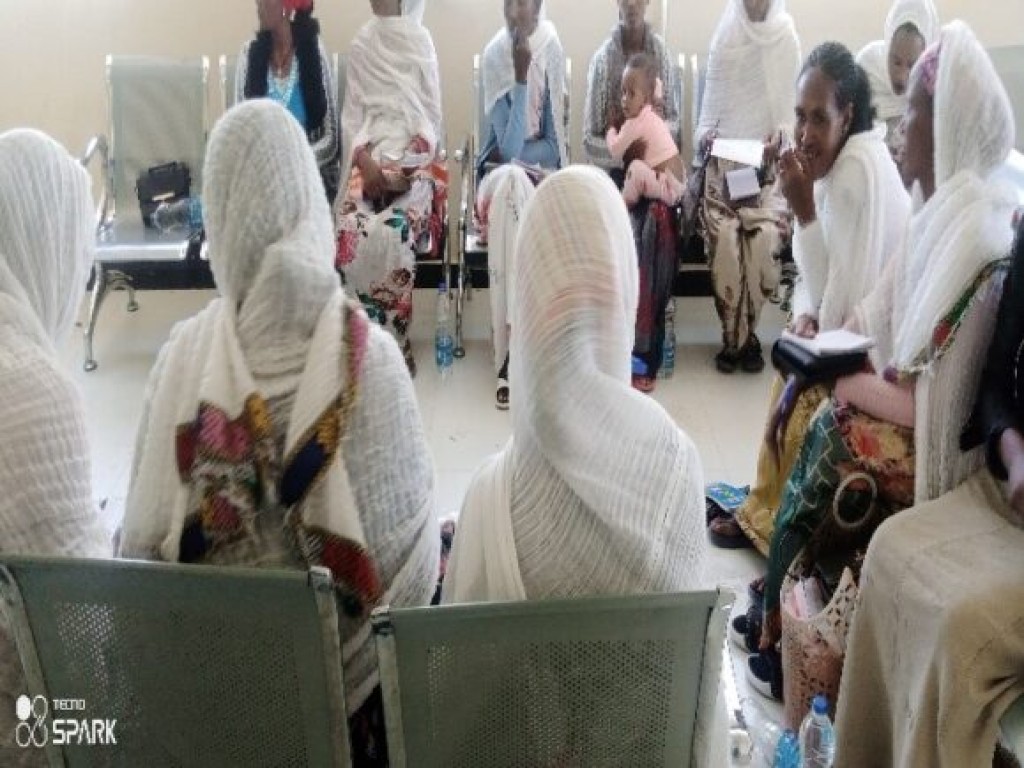Measles Outbreak Response Training
Measles is an acute and highly contagious disease caused by Measles virus. Measles is a leading cause of childhood morbidity and mortality in developing countries, particularly, in sub-Saharan Africa, where combinations of factors such as overcrowding, exposure at a younger age, malnutrition, and humanitarian crisis contribute to substantially higher case fatality rates. Deaths from Measles occur mainly due to post-Measles complications. The high morbidity and mortality from Measles could have been avoided if all children were to be vaccinated against the disease.
Ethiopia adopted the Measles mortality reduction goal in 2001 and has implemented the WHO-UNICEF recommended strategies ever since. Ethiopia has also been implementing the five key strategies recommended strategies for accelerating the control of Measles namely strengthening routine immunization, supplemental immunization, enhanced case-based Measles surveillance, vitamin A supplementation as well as appropriate case management.
The Tigray regional state has been providing immunization services based on national and international strategies to achieve the MDG and SDG for the past two decades. The immunization program has been implemented based on the targeted progress threshold of an achievement excelling with more than 90% coverage. The community-based services and awareness creation activities for immunization were also among the promising programs implemented in Tigray region.
Following the two years long war that engulfed the region, the overall health system is essentially broken and/or destroyed to a near structural collapse whereby the routine and outreach services for immunization are not being provided at facility and outreach levels. As a result, the health status of the community is virtually left under a state of high risk. Whereas the health system is currently in tatters, nearly 80 of the health infrastructure is shattered requiring major overhauling in no time where the vulnerable mothers and children are regrettably exposed to different epidemic prone diseases.
Not surprisingly and reflecting imminent threats of a broken health system, the RHB has received a report of a Measles suspected outbreak from Mehoni primary hospital by the 2nd week of April 2023. Immediately on receipt of the suspected outbreak report, the RHB PHEM department had deployed a multidisciplinary investigative team to the area vis-à-vis the urgency the incidence demands. The investigative team has undertaken thorough epidemiological and clinical investigations and serum samples were collected from 5 suspected Measles cases and were sent to EPHI for laboratory diagnosis. Of the 5 serum samples that arrived at EPHI Measles laboratory four (80%) of them tested positive for Measles infection.
Once the outbreak was confirmed by laboratory test, the RHB PHEM department has called for an integrated and comprehensive Measles outbreak response intervention in all Measles case reporting districts within Southern, Eastern and South East zones and districts hosting returnees from Saudi Arabia (total 13 districts). As part of the effort towards the Measles outbreak response, a refresher training on RCCE and community surveillance was provided for HEWs drawn from 13 woredas of the region (Raya Azebo , Raya chercher, Mehoni , Atsbi, Tsierae womeberta ,Atsbi endasillasie, Ferawn , Edagahamus, Hintalo , wojerat , Adigudom and Saesie Tsaeda Emba ) between May 13th to 27th of May 2023.

